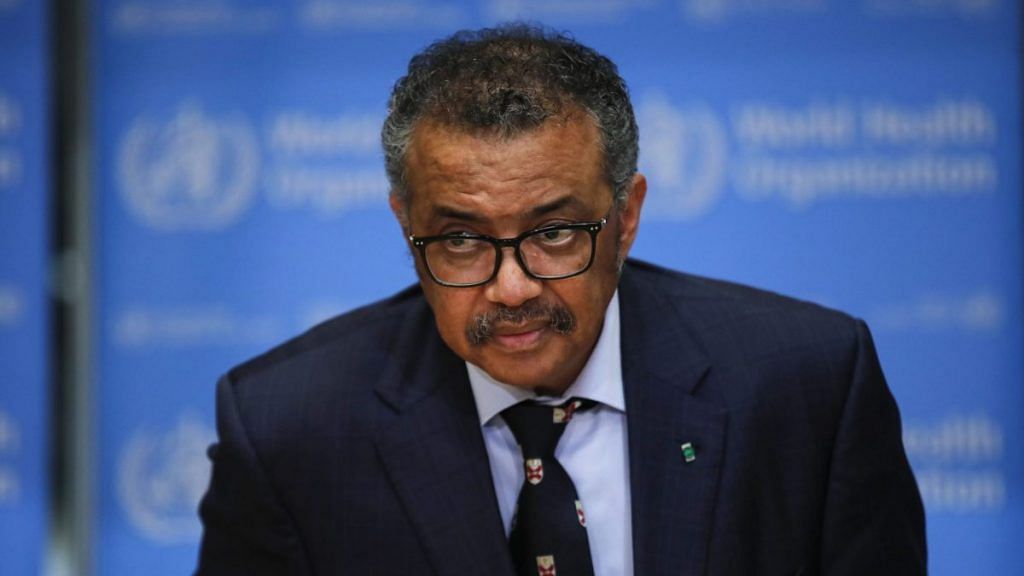New Delhi: The World Health Organization has said that the Covid-19 pandemic will threaten recent advances in healthcare and progress towards global development goals.
In its 2020 World Health Statistics Report, published Wednesday, director general of the global body, Dr Tedros Adhanom Ghebreyesus, said, “The good news is that people around the world are living longer and healthier lives. The bad news is the rate of progress will be further thrown off track by Covid-19.”
The report stated that both life expectancy and healthy life expectancy have increased, but unequally.
The biggest progress was reported in low-income countries, which saw a 11-year rise or 21 per cent increase in life expectancy between 2000 and 2016. In higher income nations, there was a 3-4 per cent rise in life expectancy.
The report also revealed that people in lower-income nations had better access than before to services for preventing and treating HIV, malaria and tuberculosis. While another good indicator was superior maternal and child healthcare, that has reduced child mortality rates by half, between 2000 and 2018.
It, however, noted that immunisation has barely increased in the recent years in low-income nations, leading to fears that malaria gains might be reversed.
A study by the Imperial College London earlier had pointed out that Covid-19 could lead to a spike in malaria, TB and HIV-related deaths in the next five years.
The WHO also estimated that approximately 1 billion people would spend 10 per cent of their household budgets on health care in 2020. The report stated that more than 40 per cent of all countries had less than 10 medical doctors per 10,000 people.
In 2017, more than half of the global population lacked access to safely-managed sanitation services, while 29 per cent did not get clean drinking water. Another 40 per cent households lacked basic handwashing facilities.
Also read: Covid-19 cases in India much lower compared to other countries: WHO chief scientist
Unequal access to health services
The WHO report also revealed that only one-third to half of the world’s population was able to access essential health services in 2017. The ability to pay for healthcare was a major challenge for many.
Dr Samira Asma, assistant director general at WHO, said, “The Covid-19 pandemic highlights the need to protect people from health emergencies, as well as to promote universal health coverage and healthier populations to keep people from needing health services through multi sectoral interventions like improving basic hygiene and sanitation.”
“The message from this report is clear: as the world battles the most serious pandemic in 100 years, just a decade away from the SDG deadline, we must act together to strengthen primary health care and focus on the most vulnerable among us in order to eliminate the gross inequalities that dictate who lives a long, healthy life and who doesn’t,” added Asma.
Also read: WHO to launch coronavirus app targeting ‘under-resourced’ countries
